Corpus Christi Blog

The Visitation of the Blessed Virgin Mary
05-25-2025Weekly ReflectionJen Arnold, M.A.During those days Mary set out and traveled to the hill country in haste to a town of Judah, where she entered the house of Zechariah and greeted Elizabeth. When Elizabeth heard Mary’s greeting, the infant leaped in her womb, and Elizabeth, filled with the holy Spirit, cried out in a loud voice and said, “Most blessed are you among women, and blessed is the fruit of your womb. And how does this happen to me, that the mother of my Lord should come to me? For at the moment the sound of your greeting reached my ears, the infant in my womb leaped for joy. Blessed are you who believed that what was spoken to you by the Lord would be fulfilled.” (Lk 1:39-45)
READ MORE
Honoring Our Elders
05-18-2025Weekly ReflectionJen Arnold, M.A.A couple of weeks ago, I wrote about the Catholic Church's involvement in the ethical implications of the development and use of artificial intelligence. Then last week, I wrote about the importance of introducing young people to religious vocations. These back-to-back topics spurred another train of thought for me. We live in a society that puts an inordinate amount of value on youth and productivity, while undervaluing the gift of old age and failing to appreciate what older people have to offer. This societal attitude marginalizes older people and often leaves them feeling isolated or even abandoned. Time and again, the Church engages in the conversations regarding contemporary challenges, including this one. In 1999, the Pontifical Council for the Laity released a document entitled The Dignity of Older People and Their Mission in the Church and the World. It addresses the value of this population and our obligations concerning their pastoral care.
READ MORE
Vocations — Responding to God’s Call for Our Lives
05-11-2025Weekly ReflectionJen Arnold, M.A.The Church has designated the fourth Sunday of Easter as Good Shepherd Sunday and the World Day of Prayer for Vocations. It is no secret that we have a shortage of priests and consecrated religious in our Church — especially in America — and we need to pray for more men and women to enter these vocations. It is also important to note that, while it is not always true, it is often true that if we wait until adulthood to have conversations about religious vocations as an option, it is too late. As children and young people are raised in the secular world, within a family, the vocation they are most exposed to is marriage. While marriage certainly is a good and worthy vocation to which many are called, failure to properly educate young people on all the possibilities has caused the deficit we find ourselves in now.
READ MORE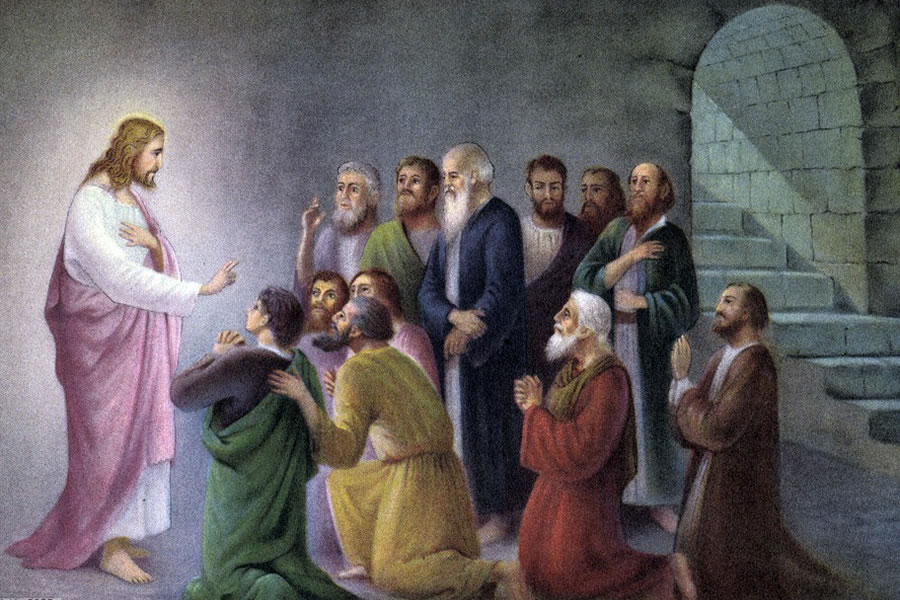
Artificial Intelligence
05-04-2025Weekly ReflectionJen Arnold, M.A.We live in an ever-changing world where scientific and technological advancements progress rapidly, so it can be challenging to keep up, particularly regarding how things relate to our faith and morals. While the Catholic Church is a more than 2,000-year-old institution, her duty has always been to help souls get to heaven by navigating the times and circumstances in which they live. It is for this reason we see the emergence and development of Church teaching on various topics such as heresies, divorce, contraception, the death penalty, and abortion. As things change, the Church remains active and engaged so she can help us stay on track regardless of what’s going on.
READ MORE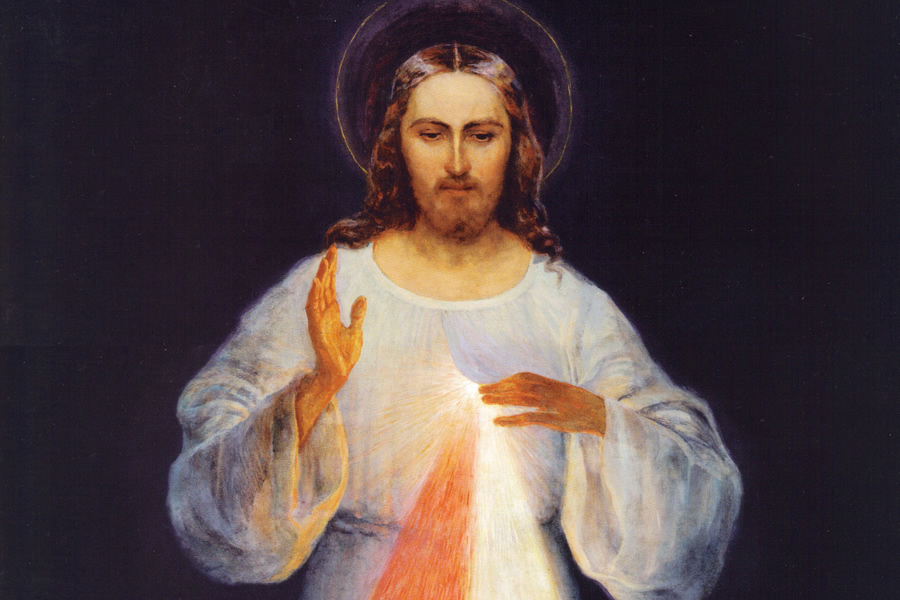
Understanding Indulgences and How to Obtain Them in this Jubilee Year
04-27-2025Weekly ReflectionJen Arnold, M.A.For this Divine Mercy Sunday, Father Rey asked that I discuss the mercy the Church offers in the form of indulgences and the special indulgences offered in this 2025 Jubilee Year of Hope. We will begin with a general explanation of what an indulgence is and what it does for us. Then, we will cover the specific ways to earn indulgences during this Jubilee year as declared by Pope Francis for the entire Church, and how Bishop Dolan has provided opportunities for us here in our diocese.
READ MORE
Easter Sunday
04-20-2025Weekly ReflectionJen Arnold, M.A.Today, we celebrate the greatest feast of the Christian faith. Easter commemorates the Resurrection of our Lord and Savior, Jesus Christ, who suffered and died for our sins so that we might have hope for our salvation and eventual resurrection. Pope Francis has designated 2025 the Jubilee Year of Hope and the faithful as “pilgrims of hope.” In his papal bull, Spes Non Confundit: Bull of Indiction of the Ordinary Jubilee of the Year 2025, the pope says, “The death and resurrection of Jesus is the heart of our faith and the basis of our hope” (#20). In other words, Easter is the very foundation for our hope, which is why this is our greatest celebration, since without hope, what do we have? Thus, Easter of 2025 seems to be the perfect opportunity to unpack why Jesus’ Resurrection is the foundational source of our hope.
READ MORE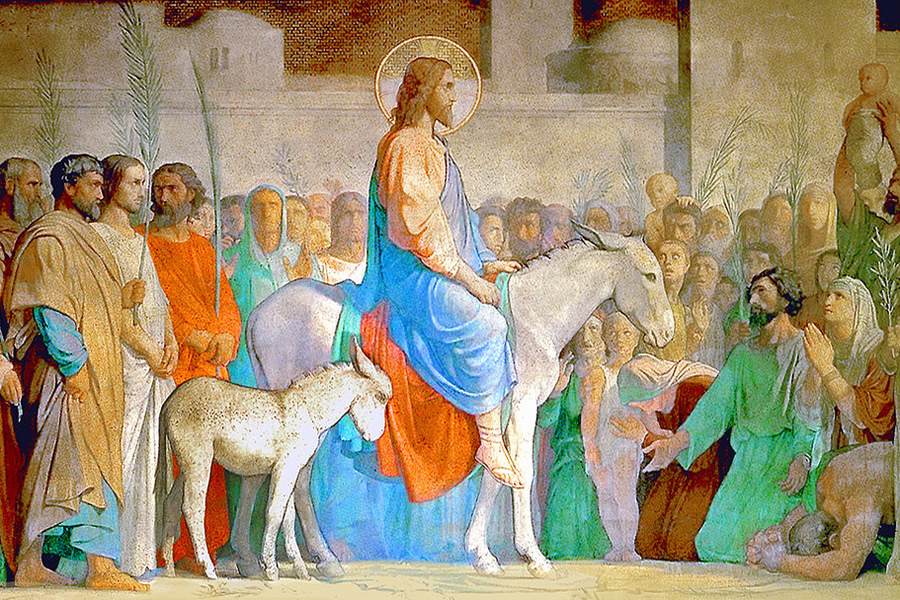
Jesus’ Physical Experience of Palm Sunday
04-13-2025Weekly ReflectionJen Arnold, M.A.Today is Palm Sunday — our Lenten journey is drawing to a close as we enter Holy Week and look forward to Easter. We have been meditating on how Jesus may have experienced his passion and crucifixion through each of his five senses. God, in his divine nature, does not have, nor does he need senses to experience things around him, so they are unique to Jesus’ human nature and can help us relate personally to him. Hopefully, this has been a fruitful meditation series for you, as you have imagined what it might have been like for your divine Savior to see, hear, taste, smell, and feel just as you do. Now, for Palm Sunday, we’ll do the same, covering all five senses for the single event.
READ MORE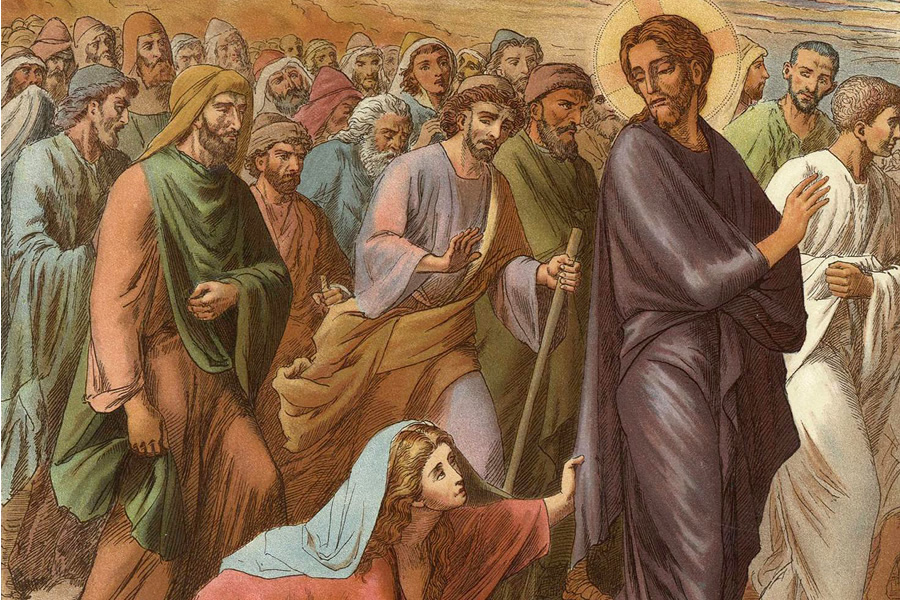
Jesus’ Physical Experience of His Passion — Part 5: Touch
04-06-2025Weekly ReflectionJen Arnold, M.A.We are nearing the end of our Lenten journey and headed toward Holy Week. We have been reflecting on how Jesus might have experienced his final hours from the Last Supper through his crucifixion, using each of his five senses, thus far covering sight, hearing, taste, and smell. Let's now explore and meditate on what Jesus experienced through his sense of touch. While this is arguably the most effortless sense to imagine, it is still helpful to tune out the other senses and focus on what Jesus was feeling through his entire body on his path to Calvary, even just to begin appreciating what he endured for our salvation.
READ MORE
Jesus’ Physical Experience of His Passion — Part 4: Smell
03-30-2025Weekly ReflectionJen Arnold, M.A.As we continue our sensory journey through Lent, we come to the fourth Sunday, where we will meditate on what Jesus may have experienced from the Upper Room to Calvary through his sense of smell. Various scents, fragrances, and aromas often evoke and connect us to memory, emotion, and presence. Whether good or bad, how often does a wafting scent instantly transport you to a particular time and place? Tune out the rest of your senses as best as possible as we focus on the scents Jesus may have encountered on his harrowing journey to the cross.
READ MORE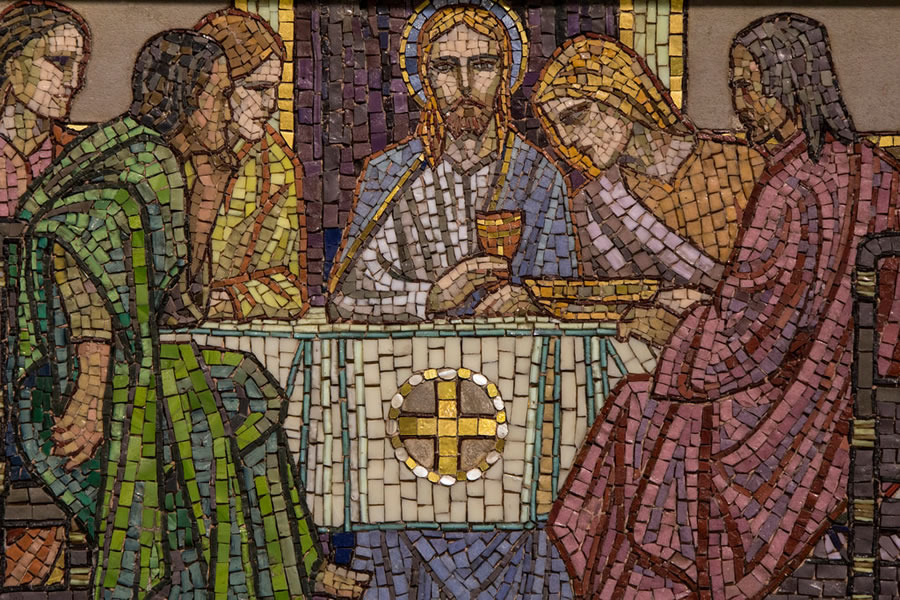
Jesus’ Physical Experience of His Passion — Part 3: Taste
03-23-2025Weekly ReflectionJen Arnold, M.A.This Lent, we have been reflecting on how Jesus may have experienced his Passion through each of his five senses. He is both human and divine, so, even though he is God, when he humbled himself to share in our humanity, he was able to experience the senses in his body and suffered in them just as we do. So far, we have covered sight and hearing. This week, we'll explore how Jesus may have experienced taste, which is probably not something we think about often, especially in terms of His Passion, so take this opportunity to tune out the other senses and meditate on what he may have tasted in his final hours.
READ MORE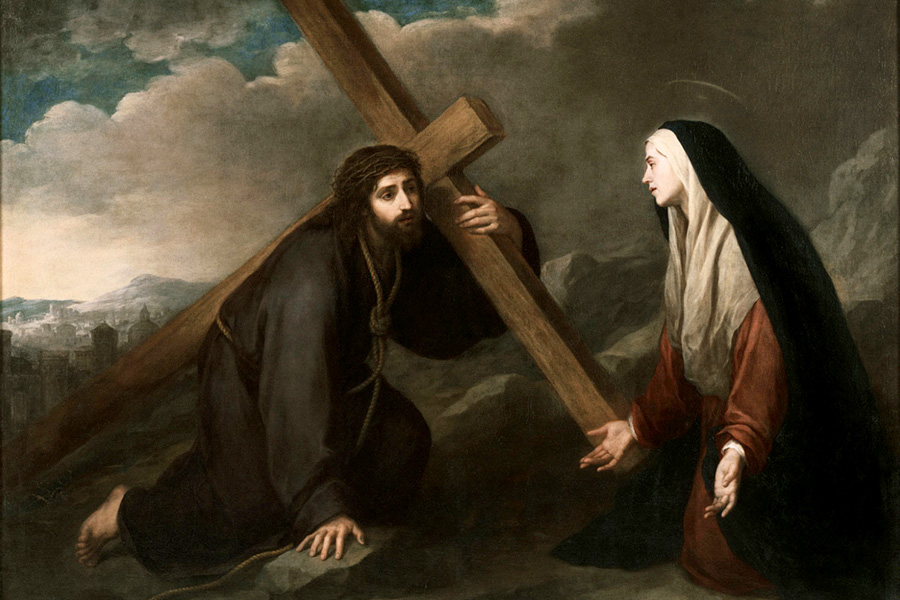
Jesus’ Physical Experience of His Passion — Part 2: Hearin
03-16-2025Weekly ReflectionJen Arnold, M.A.After exploring Jesus’ passion and death through the sense of sight last week, we’ll move on to how he might have experienced those same events through his sense of hearing. As you read through this week’s reflection, try to tune out your other senses as much as possible and focus on the intensity of the sounds involved in Jesus’ redemptive work.
READ MORE
Jesus’ Physical Experience of His Passion — Part 1: Sight
03-09-2025Weekly ReflectionJen Arnold, M.A.For this year's Lenten reflection series, we will contemplate what Jesus might have experienced during his Passion, from the Last Supper through his crucifixion, focusing on each of his five senses — sight, hearing, taste, smell, and touch.
Prior to the Incarnation, God did not have a physical body with which to experience the senses in a way that's unique to humans. Our senses help to inform us of our surroundings, provide information, and help us to make decisions. Through each of our senses, we experience the pleasures and comforts God's creation offers us. Additionally, unlike animals, who respond to stimuli based on instinct, our senses can often be a source of temptation and sin when we let them overpower our reason and will. Further, each of our senses can be a source of suffering for us if they are aggravated or irritated. When one of our senses is compromised, others are heightened to compensate for the loss.
READ MORE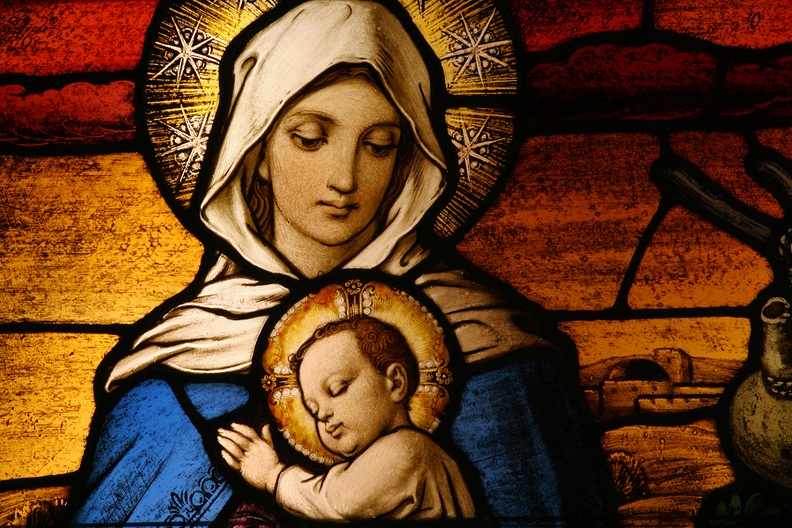
Marian Dogmas & Doctrine — Part 5: Mary’s Spiritual Motherhood
03-02-2025Weekly ReflectionJen Arnold, M.A.We have now reached the fifth and final week of this Marian series. We covered the four Marian dogmas and will now conclude with the one doctrine the Church teaches regarding our Blessed Mother. If you remember from the first week, doctrine is to be held as true and a matter of our Faith to be believed, but it has not yet been elevated to the level of dogma, which could be for any number of reasons. This doctrine defines Mary's spiritual motherhood over the Body of Christ through her three-fold role of co-redemptrix, mediatrix, and advocate.
READ MORE